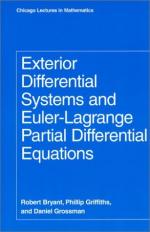|
This section contains 483 words (approx. 2 pages at 300 words per page) |

|
The Euler-Lagrange equation is a fundamental equation of the calculus of variations that is used to determine if a function has a stationary value. In physical terms a stationary value corresponds to a minimum or maximum of a function. The Euler-Lagrange equation is usually written as: (∂f/∂y) - (d/dt)(∂f/∂ &ydot;) = 0. One of the fundamental equations of calculus of variations states that for a function P defined by an integral of the form P = f(x,y, &ydot;)dx, where &ydot; = dy/dt, there is a stationary value if the corresponding Euler-Lagrange equation for that function is satisfied. When the time derivative notation is replaced by space variable notation often times, in physical problems, the partial derivative of f with respect to x is equal to 0. When this is the case the Euler-Lagrange equation is reduced to a simplified form...
|
This section contains 483 words (approx. 2 pages at 300 words per page) |

|


